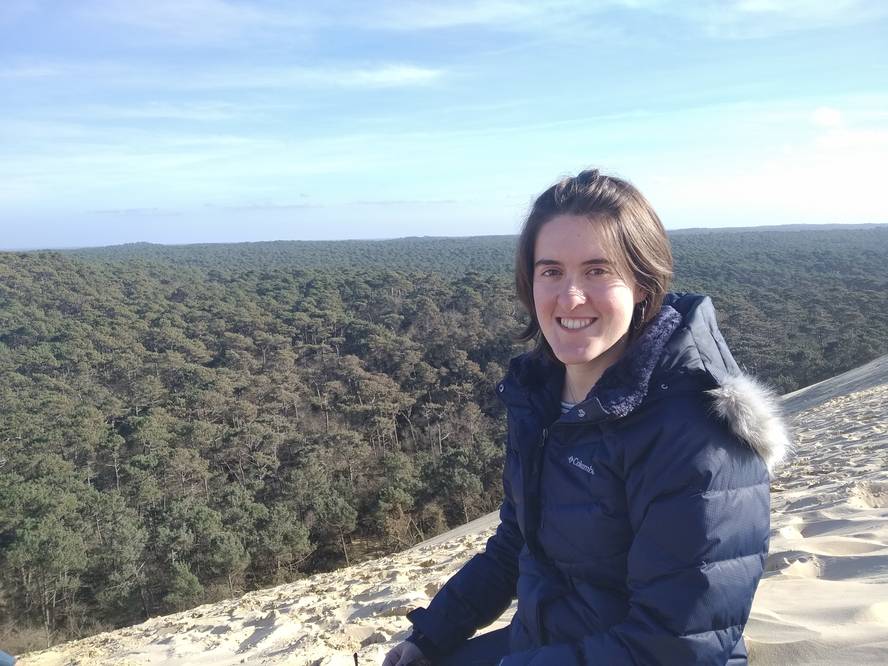“We need more feminist research”
Irati Romero Garmendia has unveiled his career from Bordeaux. In fact, he works in a laboratory dedicated to cancer research and, although he has had to make a great effort to reach him, he believes he has come quite naturally.
“As a child I always wanted to know why things are. Looking for answers, I studied biology. Meanwhile, I went to Prague with Erasmus and there I worked in a laboratory. Then I realized that I really liked laboratory work. So, in the last year of my career, I worked in the laboratory as an internal absorber. And when I finished I did the master’s degree in Molecular Biology and Biomedicine, with a team that researches celiac disease,” he recalled.
His satisfaction led him to complete his doctoral thesis. He recognized that the thesis is “hard” and, despite his taste, ended up “tired”: “It seemed to me that I could not live a part of my life: I had to leave the dance, I went less and less to Ordizia, I met my friends once… Outside the thesis, I had no life”.
Aware of this, he spent a few months to take care of himself and recover the abandoned hobbies and, believing it was the time, began to look for a place for the postdoctoral program: “But it was very difficult. I thought I had already done the thesis and realized that there was someone, but I realized that it was not enough at all, I felt a huge pressure.”
In his search he learned about the Global training scholarships. “In fact, they are aids for job placement, but I looked and saw that in Bordeaux there was a group dedicated to cancer research. They made the request and received me.”
Therefore, it now investigates glioblastomas. He says it is very different from the research done so far. In fact, he investigated the genetic basis in celiac disease. Now it investigates the processes of the disease, the changes that occur in its development. “This has forced me to change my perspective. The first question was why and now is how, or what can be done. It is very different. But this I also like. In addition, it is more applied than what I did before, and that fills me a lot.”
But other aspects of research do not like anything. And, unfortunately, they are similar both in Bordeaux and elsewhere. It is widespread that researchers have to give everything for their work and it is considered normal to work twelve hours a day. “This culture is very involved and if you try to reconcile work and personal life, it is taken badly. You stay out of the competition.”
Committed to more feminist research
She claims it should be more feminist research. “First, in Bordeaux, although most researchers are women, our elders are men. And normally boys compete more and are more individualistic. My friends are girls and we help each other more.”
And he says it is based on that science: “creativity and exchange of ideas. Hierarchy, on the contrary, makes communication difficult. On the other hand, the results must also be immediate. It's a macho vision: you have an obligation to publish fast and a lot, and that goes against quality. And it is that we have to spend time thinking what the question is, what we want to answer and so, in addition, resources are allocated better”.
However, for the moment he intends to continue investigating, “if you get off the train, then it is almost impossible to get back on.” But it is clear that he wants to return to Euskal Herria and doubts whether he will keep his research life for a long time, because he believes that the current system is harmful: “How are we going to do something for the benefit of society if we don’t care?”
He was born in Ordizia in 1990. Bachelor of Biology and Master of Molecular Biology and Biomedicine from the University of the Basque Country. In recent years he has researched the genetics of celiac disease and in 2019 he finished his doctorate in this field. Glioblastoma is currently being investigated in Bordeaux.







